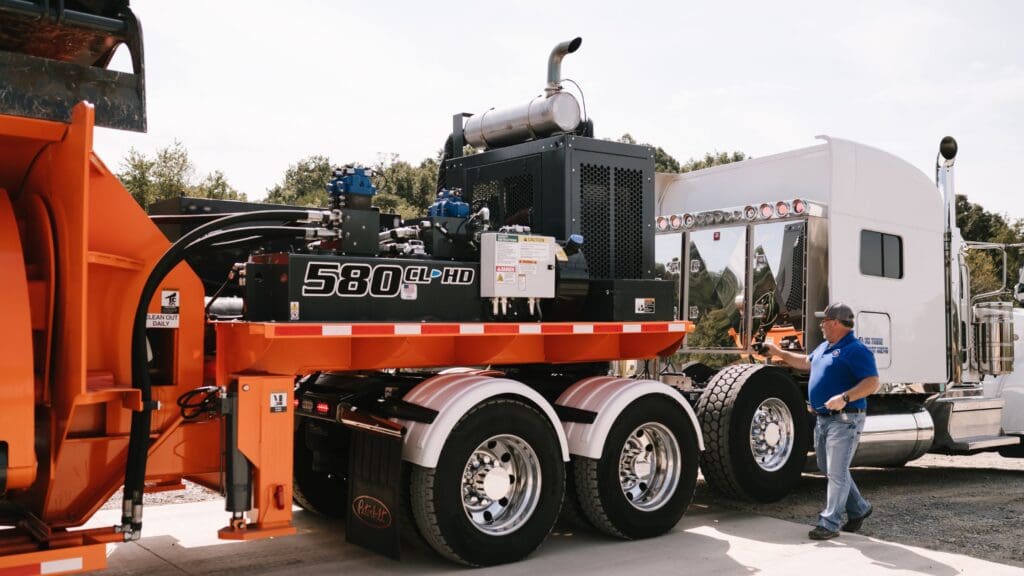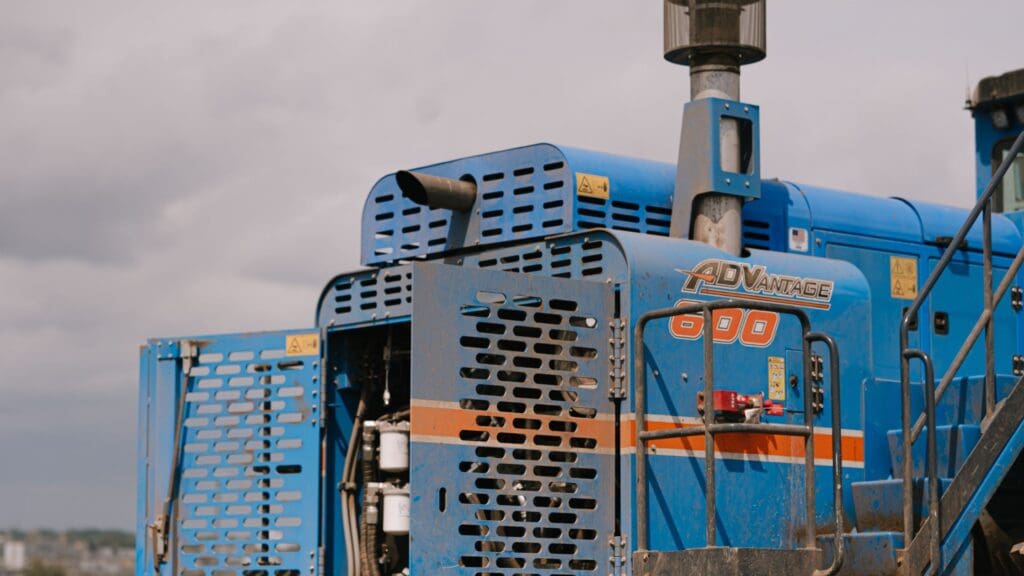If you’ve just purchased a new landfill compactor, it may seem premature to start thinking about what you’ll do when it needs to be replaced. However, making those plans early can help you predict your overall cost of ownership, minimize disruption to your business, and decide how much to set aside for future repairs or your next purchase.
Even with the best care and maintenance, most landfill compactors have a lifespan of approximately 10,000 – 12,000 operational hours before corrosion and strain begin to take their toll on more sensitive systems and components. At first, many, if not most, of these components can be repaired, but when multiple systems start to fail simultaneously or the cost of repairs approaches 50% of the cost of replacement, it makes sense to invest in equipment with full warranties and brand-new parts.
If you want to breathe new life into your machine at this point in its life cycle, there’s still a way to extend its lifespan: rebuilding instead of replacing. Many manufacturers offer this service through third parties or for specific systems (e.g. an engine rebuild), but Aljon runs a factory-certified full rebuild program that can give your compactor a second life. This program is so successful that it typically adds up to another 10,000+ hours of operation to equipment like the ADV 500 on the first rebuild. Some machines can even be rebuilt multiple times, always with a factory warranty included.
Reduce, Reuse, Recycle
Aljon’s landfill compactors are designed with this rebuild program in mind. Every component can be stripped all the way down to the frame in order to fully rebuild and restore the machine with no loss in quality or performance. This thrifty approach reuses one of the most costly and durable parts of the equipment (the frame) and stretches its lifespan as long as it feasibly can, making the manufacturing process more sustainable and saving you money by not scrapping perfectly good components. Factory rebuilds also make it possible to upgrade parts to satisfy new regulations or take advantage of new technology without having to shell out for a brand-new machine. Newer isn’t always better; if you’ve had a reliable machine for a long time, it makes sense to stick with it and rebuild instead of replacing.
Factory Certified
Many rebuild programs focus on components like the engine or hydraulics, as those systems are often the first to break down beyond repair. Aljon’s rebuild program, on the other hand, is much more extensive:
- The machine is completely disassembled down to the frame at the factory
- Every single moving part is being rebuilt, reconditioned, or replaced.
- It’s factory-certified, meaning that the landfill compactor is actually brought back to the manufacturing facility and rebuilt there by highly-trained Aljon experts, not third parties.
Once the equipment has been disassembled, it is thoroughly cleaned and repainted to protect the underlying metal. It then receives everything from brand-new hydraulic hoses to wiring harnesses and all other moving components to ensure peak performance. New or reconditioned wheels are then inspected and installed. Once everything is tested and the new build is verified, it is certified with the standard full machine warranty (6 months), power train warranty (3 years/6,000 hours), and hydraulic hose warranty (2 years), just like new machines.
When considering the lifetime ownership cost of a new machine, it’s important to check upfront whether it is eligible for a rebuild program and how comprehensive that program is. How many additional hours of use will it buy you? Does the manufacturer stand behind rebuilt products? An OEM (Original Equipment Manufacturer) rebuild ensures that your equipment is remanufactured by factory-trained technicians to the highest standards. This program reduces waste while still giving you access to a full warranty and the newest upgrades. Eventually, the time may come when even the frame needs to be scrapped, but in the meantime, rebuilding can save an average of 30% on the ownership cost over 10 years – and keep your landfill equipment from costing you landfill space.



